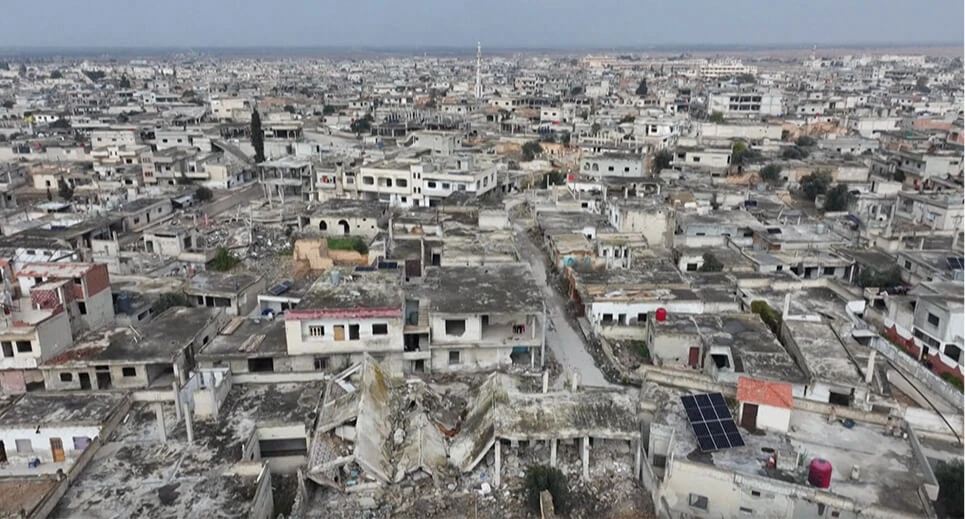Despite the fall of Bashar al-Assad’s regime in December 2024, illegal border crossings between Lebanon and Syria remain active, controlled by new actors but deeply rooted in longstanding networks of smuggling and mutual interests. A field investigation across key border regions, including al-Qusayr and Wadi Khaled, reveals the entrenched nature of these networks and the failure of political change to dismantle them.
Legacy of Conflict and Hidden Infrastructure
In al-Qusayr, a former Hezbollah stronghold, returning residents discovered hidden weapons caches and tunnel systems. Although the regime has collapsed, the area remains under tight military-economic control, now led by figures such as “Abu Talha,” a dual-national with ties to the new Syrian administration. He oversees arms, fuel, and goods smuggling via the Jousieh crossing, supported by tribal and partisan networks on both sides of the border.
A Parallel Economy in Wadi Khaled
The investigation documents a thriving shadow economy in the remote villages of Wadi Khaled, where residents describe smuggling as an economic necessity, not a crime. Items smuggled range from solar panels and medicine to people. Local leaders, like Sheikh Ahmad of al-Amaayer, argue that these exchanges are natural extensions of social and familial ties across the border.
Challenges Facing the Lebanese Army
Spanning 450 km, Lebanon’s border with Syria is largely unguarded due to mountainous terrain and logistical limitations. Although the army maintains surveillance and has documented shocking human smuggling cases, including migrants hidden in fuel tanks and truck engines, enforcement remains inconsistent. The army confirms increased smuggling activity since 2015, exacerbated by Syria’s economic collapse.
Unresolved Legal and Judicial Gaps
Lebanese law struggles to address smuggling, particularly of people. While some smugglers are prosecuted under human trafficking laws, others receive minor sentences under lesser charges like illegal entry. The judiciary lacks consistent enforcement, partly due to delays in bringing detainees to court.
Historical Role of the Syrian Army’s 4th Division
Before Assad’s fall, the 4th Division, led by Maher al-Assad, facilitated smuggling in exchange for bribes. It enabled drug and arms trafficking across the border, particularly supporting Hezbollah’s supply lines. One prominent figure, Hassan Daqou, nicknamed the “Captagon King,” operated cross-border factories producing millions of pills daily.
After Assad: New Actors, Same Routes
Following the regime’s collapse, the new Syrian administration reportedly intercepted a major arms shipment to Lebanon. However, the underlying smuggling infrastructure remains intact. Analysts suggest Hezbollah continues to receive advanced weaponry through more secure channels, with informal crossings still playing a role in regional trafficking.
This article was translated and edited by The Syrian Observer. The Syrian Observer has not verified the content of this story. Responsibility for the information and views set out in this article lies entirely with the author.


